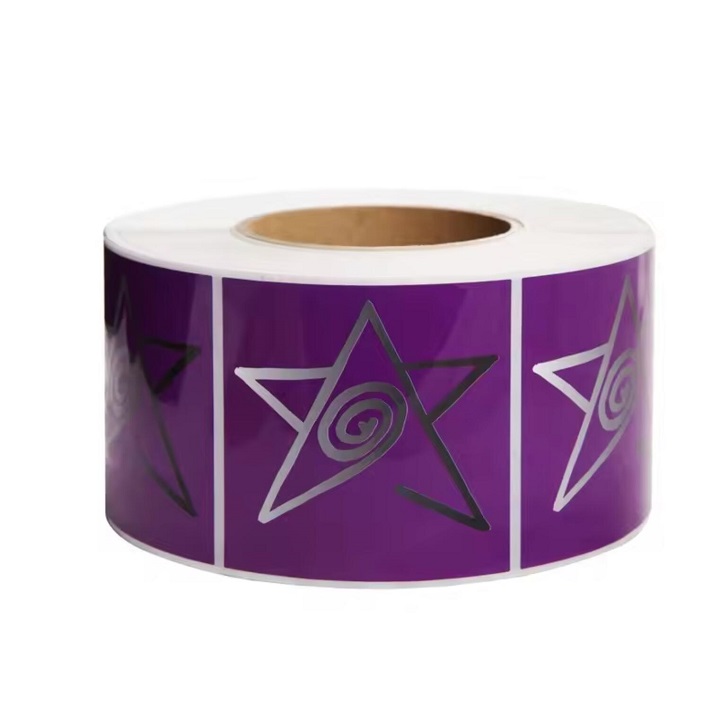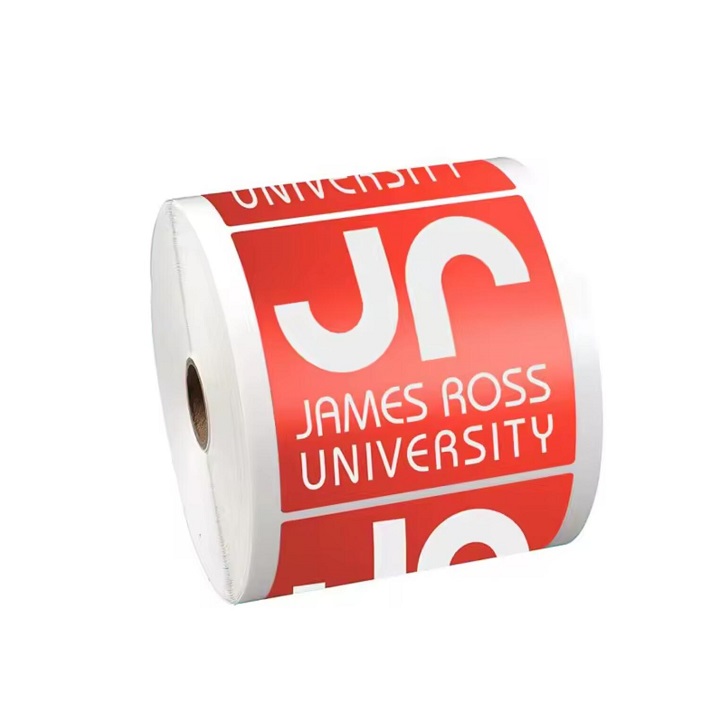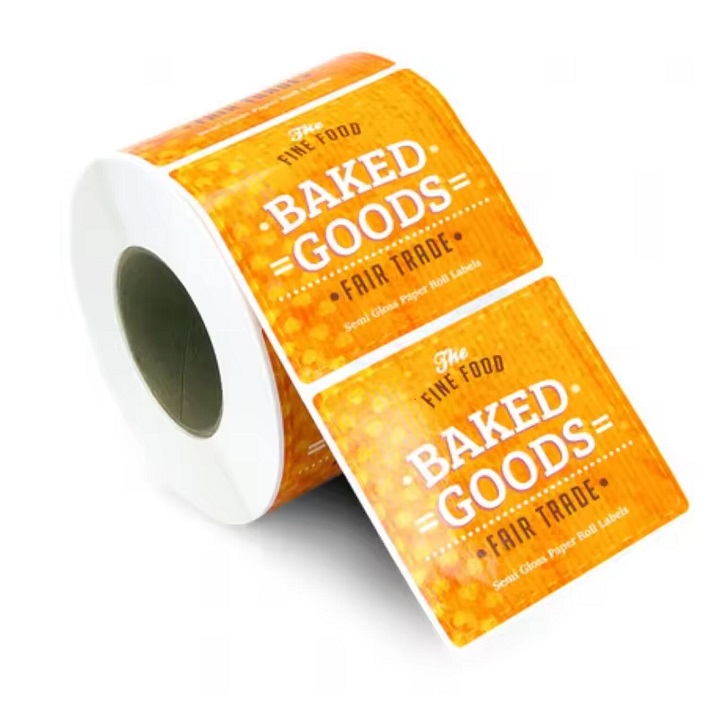Content Menu
● Overview of the Custom Labels Industry in Poland
● Leading Custom Labels Manufacturers in Poland
>> Masterpress S.A.
>> LabelExpress.eu
>> MDLabels Drukarnia Cyfrowa
>> ETYFOL
>> Comex
● Technologies and Materials Used
● Types of Custom Labels Available
● Advantages of Working with Polish Suppliers
>> Certified Quality and Standards
>> Competitive Pricing
>> Flexible Minimum Order Quantities
>> Sustainability Focus
>> Strategic Location and Logistics
● Trends Shaping the Polish Custom Labels Market
>> Digital Transformation
>> Smart Labeling Technologies
>> Sustainable Label Solutions
>> Advanced Finishing Techniques
● How to Choose the Right Custom Labels Manufacturer in Poland
● Conclusion
>> Frequently Asked Questions (FAQ)
>>> 1. What types of custom labels are commonly produced in Poland?
>>> 2. Are Polish label manufacturers equipped to handle small batch orders?
>>> 3. How do Polish suppliers ensure product quality?
>>> 4. What sustainability initiatives are common among Polish label manufacturers?
>>> 5. How quickly can custom label orders be fulfilled in Poland?
● Citations
Poland is swiftly becoming a premier destination for custom labels manufacturers and suppliers serving global brands, wholesalers, and producers. Combining deep-rooted printing traditions with modern technologies, Polish companies provide a dynamic mix of quality, innovation, and cost-effectiveness that appeals to international markets. This article explores the key custom labelsplayers, technologies, product types, benefits, and trends shaping the custom labels industry in Poland.

Overview of the Custom Labels Industry in Poland
The labeling sector in Poland is characterized by its advanced printing technologies and sustainable practices. Polish manufacturers produce a wide range of labels such as self-adhesive labels, shrink sleeves, security labels, RFID-embedded labels, and eco-friendly linerless labels. These suppliers are adept at delivering both small custom runs and large-scale OEM orders, utilizing flexographic, digital, offset, and gravure printing techniques.
State-of-the-art equipment, including inline varnishing and cold foil embossing, helps companies achieve premium finishes and enhanced durability in their products. Polish manufacturers generally comply with ISO, GMP, and BRCGS standards, providing assurance for sectors like food, cosmetics, and pharmaceuticals.
The industry's growth is fueled by increasing demand for product differentiation, regulatory compliance, and sustainability commitments from brands worldwide. This has prompted Polish suppliers to invest heavily in research and development, enabling them to introduce cutting-edge materials and finishing techniques that enhance both aesthetics and functionality.
Leading Custom Labels Manufacturers in Poland
Masterpress S.A.
Headquartered in Białystok since 1996, Masterpress S.A. is one of Europe's foremost producers of custom labels and printed decorative packaging. They specialize in sustainable, creative solutions for FMCG brands covering shrink sleeves, self-adhesive labels, sachets, paper bags, and tea tags. Their dedicated R&D department recently pioneered plastics reduction and improved recyclability in label materials.
Masterpress combines traditional craftsmanship with automation technologies to maintain consistent quality while meeting large volume demands. Their ability to offer fully customized labels tailored to brand requirements establishes them as a reliable OEM partner for international companies.
LabelExpress.eu
Based in Poznań, LabelExpress.eu is a digital printing specialist delivering fast turnaround and highly customizable self-adhesive labels and stickers. Their platform allows clients to order labels of various sizes and shapes with eco-friendly inks and materials, supporting a broad client base from startups to established companies.
LabelExpress focuses heavily on customer experience via an intuitive online ordering system, real-time proofing, and flexible minimum order quantities. Their advanced digital presses allow vivid color reproduction and complex designs with speed and accuracy, making them ideal for short runs and marketing campaigns.
MDLabels Drukarnia Cyfrowa
MDLabels, located in Kalisz, excels in producing diverse self-adhesive labels, tailored to client needs. They leverage digital printing technologies for high-quality output and flexibility, serving industries ranging from logistics to consumer products.
Their strength lies in combining digital printing with finishing options such as lamination, UV coating, and custom die-cutting to deliver premium and durable labels. MDLabels' expertise extends to security labels and tamper-evident solutions, helping brands protect authenticity.
ETYFOL
With over 20 years in the market, ETYFOL is known for roll labels printed using flexographic technology, providing durable and versatile labeling solutions, fulfilling both large industrial orders and smaller custom requests.
ETYFOL's investments in modern flexo presses allow high-speed production with superior image quality. Their material portfolio includes synthetic films, papers, and special adhesives suited to automotive, electronics, and food sectors.
Comex
Comex is a specialist in self-adhesive, RFID, and specialty labels for sectors including retail, logistics, and pharmaceuticals. Their ability to embed smart labeling technology adds value for brands seeking enhanced security or supply chain transparency.
Comex supports brands in adopting track-and-trace systems with their RFID-enabled labels, improving inventory management and anti-counterfeiting measures. Their focus on quality control and compliance helps pharmaceutical manufacturers meet stringent regulatory demands.

Technologies and Materials Used
Polish label manufacturers integrate various printing technologies, including:
- Flexographic printing: Ideal for large volume labeling with cost efficiency.
- Digital printing: Suited for small batches, prototypes, and quick customization.
- Offset printing: For high-resolution and color-accurate labels.
- Gravure printing: Provides superior quality for long runs of premium labels.
Substrates used range from standard paper and vinyl to advanced polypropylene and biodegradable materials. Adhesives vary between permanent, removable, repositionable, and specialty types formulated for specific environmental conditions or surfaces.
Advanced finishing techniques such as inline varnishing, holographic foils, cold foil embossing, hot stamping, and braille embossing allow manufacturers to create distinctive labels that stand out on retail shelves.
The growing use of smart technologies like embedded RFID chips and QR codes on labels enables increased interactivity and supply chain transparency, aligning with evolving market trends toward digitization.
Types of Custom Labels Available
The Polish market supports a wide variety of label types:
- Self-Adhesive Labels: The most common, these are used for branding, product information, and compliance across various industries from food and beverage to cosmetics.
- Shrink Sleeve Labels: Printed on heat-shrinkable films providing 360-degree coverage, widely applied in beverage, personal care, and household products due to their eye-catching aesthetics.
- Security Labels: Incorporating tamper-evident materials, holograms, destructible vinyl, and void patterns to protect products and assure customers of authenticity.
- RFID Labels: Smart labels embedded with RFID chips offer real-time tracking capabilities essential for inventory management, logistics, and anti-counterfeiting.
- Linerless Labels: Environmentally friendly labels that reduce waste by eliminating the backing liner; used increasingly in retail and logistics for sustainable packaging solutions.
- Printed Stickers and Decals: Custom-shaped stickers used for promotional purposes, branding, and decorative applications, often produced with vibrant colors and durable finishes.
This wide product range allows Polish manufacturers to effectively meet diverse and niche customer demands, supporting industries such as pharmaceuticals, electronics, food and beverage, logistics, and cosmetics.
Advantages of Working with Polish Suppliers
Certified Quality and Standards
Most Polish manufacturers maintain certifications such as ISO 9001 for quality management, GMP for good manufacturing practices, and BRCGS for safety and compliance. This ensures their products meet rigorous international standards, giving global brands confidence in consistent quality and regulatory adherence.
Competitive Pricing
Poland's economic structure, access to abundant European raw materials, and efficient manufacturing technologies allow companies to offer competitive prices. This cost advantage, combined with high-quality standards, attracts foreign companies looking for value in OEM labeling solutions.
Flexible Minimum Order Quantities
Thanks to digital printing adoption, many Polish suppliers can handle everything from prototype and small batch runs to high-volume production. This flexibility supports startups and SMEs who require lower quantities and faster turnaround without sacrificing quality.
Sustainability Focus
Environmental consciousness is a key trend among Polish label manufacturers. Many have adopted sustainable raw materials such as recycled papers and biodegradable films. They also utilize water-based, UV, and soy inks to reduce VOC emissions. Linerless labeling and plastic reduction projects are steadily increasing, helping clients achieve their eco-goals.
Strategic Location and Logistics
Poland benefits from its central location in Europe, offering excellent logistics infrastructure including highways, railways, airports, and seaports. This ensures fast, reliable delivery to Western and Eastern European markets, reducing transit times and costs for customers.
Trends Shaping the Polish Custom Labels Market
Digital Transformation
The shift towards digital printing technologies is transforming labeling in Poland. Digitally printed labels allow for variable data printing, shorter lead times, and more customization options. This suits personalized marketing strategies and rapid product launches in competitive markets.
Smart Labeling Technologies
The inclusion of RFID, NFC, and QR codes embedded in labels is on the rise, facilitating enhanced consumer engagement, supply chain transparency, and anti-counterfeiting. Polish manufacturers are increasingly offering smart label solutions integrated into traditional manufacturing workflows.
Sustainable Label Solutions
The demand for environmentally responsible packaging has led to greater use of recyclable substrates, biodegradable adhesives, and water-based inks. Linerless labels and plastic-free labeling alternatives are also gaining traction, aligning with global sustainability initiatives.
Advanced Finishing Techniques
Unique tactile finishes such as soft-touch coatings, embossing, glitter foils, and holographic elements are becoming prevalent. These finishes add visual appeal and enhance brand differentiation on crowded retail shelves.
How to Choose the Right Custom Labels Manufacturer in Poland
When selecting a supplier, consider:
- Production capacity and technology: Ensure they can meet your volume and quality needs, whether small or large orders.
- Product range and customization options: Choose a manufacturer offering your required label type(s) and finishing options.
- Sustainability commitments: Check if the supplier provides eco-friendly materials and processes aligned with your brand values.
- Pricing and MOQs: Evaluate cost-effectiveness and whether the minimum order quantity matches your needs.
- Certifications and compliance: Confirm adherence to quality and safety standards relevant to your industry.
- Customer service and technical support: Responsive communication and expert guidance streamline project delivery and troubleshooting.
Conclusion
Poland stands out as a robust hub for custom labels manufacturers and suppliers, offering unparalleled flexibility, innovative technology, and sustainable practices at competitive prices. Its strategic location coupled with certifications and diverse product offerings makes it an excellent choice for foreign brands, wholesalers, and producers seeking reliable OEM label solutions. Whether requiring standard self-adhesive labels or advanced RFID-embedded options, Polish suppliers deliver consistent quality and innovation that meets evolving market demands.

Frequently Asked Questions (FAQ)
1. What types of custom labels are commonly produced in Poland?
Polish manufacturers produce self-adhesive labels, shrink sleeves, security labels with holograms, RFID labels, and eco-friendly linerless options to cater to diverse industry needs.
2. Are Polish label manufacturers equipped to handle small batch orders?
Yes, many companies utilize digital printing technologies, allowing them to efficiently produce low volume and prototype orders alongside large-scale production runs.
3. How do Polish suppliers ensure product quality?
Most suppliers possess certifications like ISO and GMP and follow strict quality controls and inspection protocols to guarantee consistency and safety for global markets.
4. What sustainability initiatives are common among Polish label manufacturers?
Common practices include use of biodegradable adhesives, recycled materials, water-based inks, and linerless labeling technologies aimed at reducing packaging waste and environmental impact.
5. How quickly can custom label orders be fulfilled in Poland?
Lead times vary based on order size and customization but digital print runs can often be delivered within a few days, with larger orders requiring extended timelines depending on complexity.
Citations
[1](https://www.xkdisplay.com/top-labels-manufacturers-and-suppliers-in-poland.html)
[2](https://ensun.io/search/label/poland)
[3](https://pro-logis.waw.pl/en/labeling-services/)
[4](https://www.pmlabels.com/labels/in-poland)
[5](https://polinal.eu/products/labels-and-printed-stickers/)
[6](https://mdlabels.eu)
[7](https://etyfol.pl/en/)
[8](https://comex.net.pl/en)
[9](https://www.epus.eu/en)































